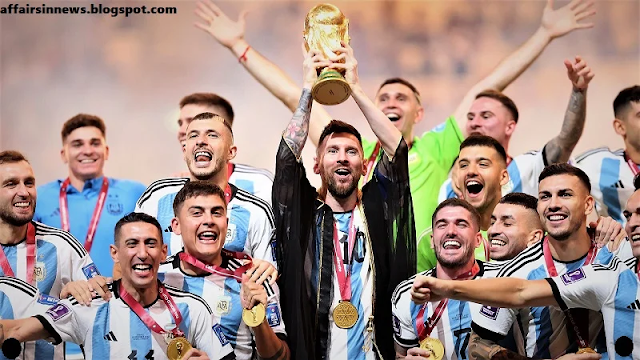THE LESSON OF COURAGE AND TEAM SPIRIT IN JAPAN'S HISTORIC WIN AGAINST SPAIN
"The desire not to give up leads to victory" Sixth grade soccer boy interacting with Doan
Don't give up until the end. The historic victory over Spain, a strong team, gave courage and hope to a young soccer player who dreams of joining the Japan national team.
Sosaku Eto, a 12-year-old sixth-grader from Tsushima City, Aichi Prefecture, who woke up just before 4 a.m. to watch the match on TV at home, said, "We were nervous in the first half, but we were always excited in the second half.
When he was in third grade, he was selected as the MVP at a soccer camp in the prefecture, so he traveled to Spain and the Netherlands to participate in the training sessions of European teams. He spends his days immersed in football while traveling back and forth between Japan and overseas.
The most exciting moment against Spain was when Ritsu Doan scored the equaliser. "I thought I was going to kick it to the left, but it was on the right, I think it was the other way of the keeper. The professionals are amazing."
Last winter, when he participated in a training session with PSV Eindhoven in the Dutch first division, where Doan belonged, he also interacted with Doan. "Take shots when you think you can do it, and don't worry about the people around you," he said, adding that he was given advice, "I valued team play and sometimes missed opportunities, so it was very encouraging."
My dream is to become a professional soccer player for the national Japan national team and Europe. "I want to emulate Doan's ability to make his first touch, and it was a match where I learned that not giving up until the end will lead to victory."
 |
| RITSU DOAN - JAPANESE FOOTBALL PLAYER |
Growth from the Doha tragedy with one minute left Japan National Football Team
At the World Cup Qatar, Japan defeated Spain 2-1 in the final match of Group E of the first round at the Khalifa International Stadium in Doha on Japan Sunday. Japan finished top of the group with six points, with two wins and one loss, and qualified for the playoffs for the second consecutive time.
With a 2-1 lead, the second half showed seven minutes of added time. All 11 Japan were pushed deep into their own camp as they endured the Spanish onslaught. Based on the situation between Germany and Costa Rica at the same time, if they catch up, they will be eliminated from the first round. With only one minute to go until the estimated seventh minute, a nightmare from 29 years ago flashed through the mind of coach Hajime Moriyasu, who was watching from the pitch side.
October 28, 1993. Japan faced Iraq in the final Asian qualifier for the '94 World Cup in Doha. In a match that would have qualified for their first World Cup if they won, they led 2-1, but conceded a goal in the closing minutes. It's the "Doha tragedy" that misses out on the ticket of a dream. Tetsuji Shibatani, the captain of the Japan National Team at the time, recalled, "How could we have bought time for one more minute, the way we carried the game when we were winning 2-1 was a lack of experience in the Japan football world."
Coach Moriyasu was also present as a player. The goal was conceded from the opponent's right corner kick. The Japan players defended well in front of goal, but were caught by surprise by Iraq's short corners (short passes) and their response was delayed. Based on this experience, coach Moriyasu has been telling the current Japan National Team, "If you are positive or negative, I would like you to choose the aggressive side to play."
As time passed, in the same match against Spain in Doha, we found ourselves in the same situation as at the time, where if we were to catch up, we would be eliminated. However, the way Japan fought had changed drastically. Even when the ball was connected and swung around, the players' concentration was not interrupted, and they did their best to stop the opponent without hesitation. "Times have changed, the players are playing for a new era". Coach Moriyasu listened to the final whistle with such thoughts in mind.
Japan made his first appearance in the World Cup in France in '98. The slogan of the first round, which was tied with Argentina and other champions, was "one win, one draw, one loss". However, they lost all three matches. Since then, we have continued to grow by following the back of the world.
At the World Cup in France, all the Japan national teams were from the J.League, but now many Japan players play in Europe as a matter of course.
They could have been eliminated by 2010 South African champions Spain with a draw or less, but many players did not feel the pressure and insisted, "We just need to beat Spain." Tanaka Aoi, who scored the winning goal, said, "We were able to come back from behind because of our strength." Gone are the days when individual players improved their strength and assumed defeat against strong opponents.
Director Moriyasu advocates "a new landscape." After beating the defending champions Germany and Spain, they advanced to their goal of reaching their goal of reaching the top eight for the first time or higher, and "the new scenery is the last eight in terms of standings, but the players are showing us a different and new view to compete on the world stage." Next up is the first round of the playoffs, which has been bounced back three times in the past. A team that is making strong strides will take on the history of Japan football.
Palm slander … Japan national team fights off the pitch at the Soccer World Cup
The struggle wasn't just on the pitch. The Japan National Team, who came from behind to beat Spain in the World Cup Qatar on 1 (2 Japan hours), scored a historic victory over strong Germany in their first match, but lost to Costa Rica in the second match. While severe slander against some of the players was spreading on social networking services (SNS), the players tried to maintain their composure as they entered the match.
TANAKA Ao (24) = Düsseldorf = who scored the winning goal against Spain expressed his joy at the victory after the match, but his expression clouded and his heart was revealed. "After losing to Costa Rica, a lot of different players were saying a lot of things, why don't they fight together when we're the same people?"
After the match against Costa Rica, the blame focused on captain YOSHIDA Maya (34) = Schalke = who made a mistake that led to the opponent's final goal with a half-hearted pass. Yoshida's Instagram account included not only "captain disqualification" and "war criminal" related to the match, but also words such as "Go back (to Japan)." Ito Hiroki (23) = Stuttgart = who selected many back passes also lined up on Instagram with unbearable words such as "Welcome home" and "Costa Rica's 12th player".
Under such circumstances, how did the team approach the match against Spain? GK GONDA Shuichi (33) = Shimizu S-Pulse = recalls, "It was important for our mentality not to change what we were supposed to do." They were not overwhelmed by the win against Germany and turned their minds back from the defeat against Costa Rica. The coaches, players, and staff worked hard to practice as usual, and they overcame the difficulties with unity.
Keisuke Honda, a 36-year-old former Japan national team member who is commentating on the match of this tournament, said on his Twitter account, "We should stop making easy criticisms of Hiroki Ito." G.G. Sato, a 44-year-old member of the baseball team at the 2008 Beijing Olympics who was bashed for making a series of mistakes during the tournament, tweeted after the Costa Rica game, "Don't use the word war criminal for the players who are fighting with pride for the Japan national team, and use the power of words to cheer for courage and hope."
Excessive criticism and slander on social media has plagued athletes, not only at this World Cup, and has become a social problem. At last year's Tokyo Olympics, athletes were subjected to excessive criticism and attacks in response to competition results, and the International Olympic Committee (IOC) sounded the alarm during the Games.
The Fédération Internationale de Football Association (FIFA) also announced before this tournament that it will start working to protect players during the tournament. FIFA has indicated that it will monitor the social media accounts of participating players to extract posts suggesting discrimination and intimidation, and report violators to the legal authorities.
Takayuki Sugo, a professor of sports psychology at Osaka University of Physical Education, who is an expert on mental health care for athletes, said, "FIFA's response may give the impression of a control of speech, but considering the pressure on the players, it offsets freedom of expression, so I think it is an appropriate measure."
As major sporting events such as the World Baseball Classic (WBC) continue next March, concerns about malicious smear on social media continue. Professor Sugo pointed out that the phenomenon of palm flipping is "a symbol of the 'distortion' of SNS where the responsibility is not clarified." "If you are a Japan who has been praised for your manners at the World Cup, there is still room to appeal to your conscience," he said, pointing out the importance of awareness-raising activities by sports organizations and other organizations and measures to protect athletes.










0 Comments
Any question in your mind or a request you want me to fulfill, please don't hesitate, comment below or do email to me.
I will try whatever I can!